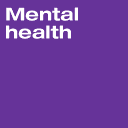There were calls
yesterday for an independent review of the regulation of drugs in the UK,
following the banning of most modern anti-depressants from use in children
some years after pharmaceutical company trials showed up a problem.
Mind, the leading mental health charity, said the regulatory process
was fundamentally flawed and needed to be overhauled if consumers were to
have any confidence in it.
"It is totally unacceptable that for a significant period 50,000
children and adolescents in the UK have been prescribed anti-depressant
drugs that were not licensed for use but it is only now being demonstrated
that they do not help and can indeed cause harm," said Richard Brook,
Mind's chief executive.
"The loud voices of users and a high profile campaign started a course
of events that led to [Tuesday's] announcement. Long-term, effective and
strong regulation has not been evident or provided the type of information
consumers have the right to expect."
As the Guardian revealed yesterday, four antidepressants of the
selective serotonin reuptake inhibitor (SSRI) class were effectively
banned from use in children by the Medicines and Healthcare Products
Regulatory Agency: Lustral (known as Zoloft in the USA), Cipramil,
Cipralex and Faverin. Two others, Seroxat and Efexor, were banned earlier
this year. None was licensed for use in children, but doctors can
prescribe unlicensed drugs if they feel it is appropriate.
The MHRA reached its decision after an expert working group reviewing
the SSRI class of drugs was given access this year to the full trial
results of some in children. Although these were carried out in the mid to
late-1990s, the full data had not been given to the MHRA. These showed
that more children and adolescents became suicidal on the drugs than on
placebos (sugar pills).
The review of the SSRIs was only set up at the end of last year because
of mounting public pressure, following allegations that people became
hooked - unable to stop taking them without suffering severe withdrawal
effects - and in some cases suicidal.
"There are enormous commercial interests trying to influence decisions
about the use of drugs," said Mr Brook. "Pharmaceutical companies
represent the second largest industry in the UK. The public needs to have
confidence that their health is being properly protected - particularly
where children are concerned."
The companies are not happy with the MHRA ruling. Pfizer, which
manufactures Lustral, said in a statement: "Pfizer disagrees with this
guidance based on a thorough review of our clinical trial database ...
Pfizer believes that the robust clinical programme involving sertraline
suggests no increased risk of harm to any population, including children
and adolescents."
One drug from the SSRI class, Prozac, has not been banned, but the
psychopharmacologist whose researches started the concerns over suicides
said yesterday that the trial data in children did not show it was
superior in safety or efficacy to the others. David Healy, director of the
North Wales department of psychological medicine, said there had been two
trials of Prozac in children - one reported in 1997 and the second in
2002. The drug's performance in the first showed little effect.
In the second trial, however, although Prozac did not lift children's
depression more effectively than the other SSRIs, it scored better because
the children in the comparison placebo group did not do as well as in
trials of other drugs.
And yet, said Dr Healy, "the adverse event [side effect] profile was
worse on Prozac than on placebo. In the Prozac group of trials there were
four suicidal acts among children and zero on placebo."
There is some concern now that children on SSRIs will be switched by
doctors to Prozac, when the best alternative for most would be non-drug
therapy. Mind said yesterday, however, that there is a shortage of
professionals trained in other approaches which can help in depression.
Mind and the MHRA say it is important for children on SSRIs not to stop
taking them suddenly, but to consult their doctor.




